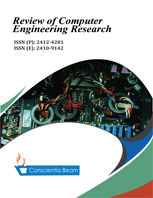An imperative role of studying existing battery datasets and algorithms for battery management system
DOI:
https://doi.org/10.18488/76.v10i2.3413Abstract
Numerous portable technologies, including electric vehicles, cell phones, and laptops, are powered by batteries. The use of batteries is increasing due to the widespread usage of battery energy storage in the generation of renewable energy. This has also resulted in an increase in the number of negative incidents related to batteries and had a significant negative economic impact on industries. The shortcomings in the traditional monitoring of lithium-ion batteries have been overcome through the implementation of advanced technologies. However, few studies have discussed the use of distinct datasets in the implementation of an intelligent battery management system (BMS). This paper presents a discussion on the choice of dataset variables and applied algorithms for the implementation of effective BMS with artificial intelligence (AI) and machine learning (ML). The study analyzed the use of different datasets, including the National Aeronautics and Space Administration (NASA) battery dataset, to improve BMS. It found that the dataset variables must include the terminal voltage, terminal current, charge current, charge voltage, internal resistance, temperature, and cycle to calculate the state of health (SoH). In future, BMS hardware will be developed to obtain more precise results using AI and ML-based prediction models, utilizing the selected dataset characteristics and variables to achieve longer battery life.





